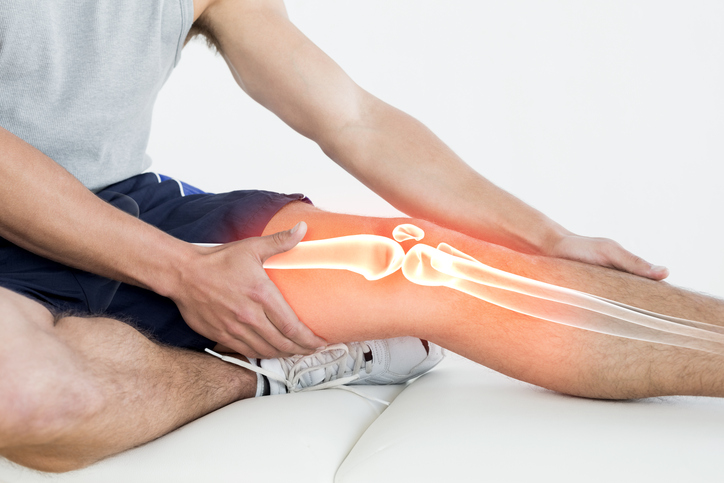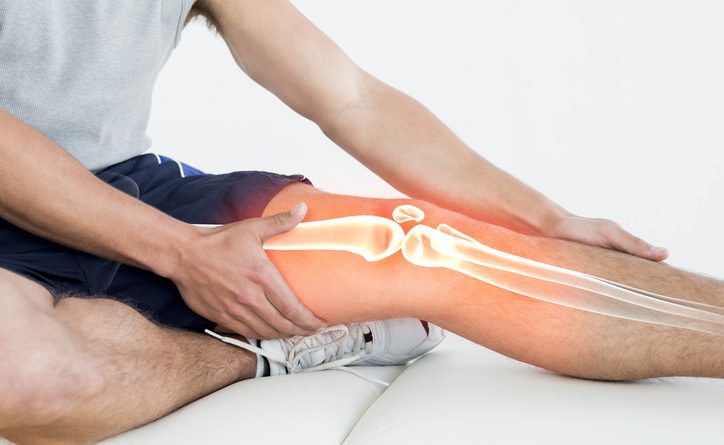Plasma rich in growth factors to treat osteoarthritis of the knee
In knee osteoarthritis affects more than 4.5 million people, according to data from the Society of Rheumatology. In addition, it is estimated that its prevalence will increase in the coming years.
This chronic disease is characterized by the progressive deterioration of the cartilage of the joints, causing pain, stiffness and incapacity, as well as a progressive deformation of the knee. The very high number of people affected, as well as the socio-health cost that each year entails (estimated at several billion), has made this disease a major health problem in our country.
 Today there is no curative treatment for this condition and, in many cases, involves placing a knee prosthesis on the patient. However, there are palliative treatments that seek to improve the living conditions of those affected. Specifically, the infiltrations of Endoret (PRGF), a technology developed and patented by BTI, a multinational specialized in biomedicine and biotechnology, reduce the pain and stiffness suffered by people with osteoarthritis of the knee and significantly improve the functional capacity of the joint. the osteoarthritic knee.
Today there is no curative treatment for this condition and, in many cases, involves placing a knee prosthesis on the patient. However, there are palliative treatments that seek to improve the living conditions of those affected. Specifically, the infiltrations of Endoret (PRGF), a technology developed and patented by BTI, a multinational specialized in biomedicine and biotechnology, reduce the pain and stiffness suffered by people with osteoarthritis of the knee and significantly improve the functional capacity of the joint. the osteoarthritic knee.
Coinciding with the celebration of World Osteoarthritis Day this coming October 12, BTI presents the results of the latest study on the therapeutic application of Endoret (PRGF), a plasma rich in growth factors, for the treatment of knee osteoarthritis.
The trial, which has been published in the October issue of the prestigious medical journal Arthroscopy, gathers new scientific evidence that shows how treatment with this drug reduces the symptoms of osteoarthritis in the medium term .
These conclusions are derived from a new clinical trial comparing the results obtained in patients with arthrosis levels of 2 to 4 (the most severe) treated with Endoret, compared to those who received a standard treatment based on acid infiltrations. hyaluronic The trial was attended by 96 patients and it was found that treatment with Endoret (PRGF) is significantly more effective than treatment with hyaluronic acidin the reduction of knee pain, rigidity and improvement of physical function in patients with osteoarthritis of the knee. In addition, this study has shown the medium-term efficacy of this treatment, since good results are maintained for a whole year after the application cycle (3 intra-articular injections in 3 weeks).
Thus, this new trial reinforces the already consistent results obtained in a previous multicentre clinical trial, which demonstrated the efficacy and biosecurity of Endoret (PRGF) in the symptomatic treatment of knee osteoarthritis in the short term.
How Endoret works (PRGF)
Endoret infiltrations (PRGF) in the knee improve the biological environment of the tissuesof this joint. Through this treatment, the cells of the joint are stimulated, making them naturally produce a greater amount of hyaluronic acid. In addition, it reduces inflammation and stimulates the regeneration of cartilage tissue .
According to Dr. Víctor Vaquerizo García, principal investigator of the study, ” taking into account the results obtained, it is clear that the application of Endoret (PRGF) for the treatment of osteoarthritis of the knee is an effective alternative in the short and medium term. ” The doctor of the Department of Orthopedic Surgery and Traumatology of the Prince of Asturias University Hospital in Alcalá de Henares also adds that”If we take into account the side effects of the different existing treatments for osteoarthritis, and the duration of the effect of these, we can say that Endoret (PRGF) is a clear treatment option in those patients who can not continue or do not respond to previous pharmacological treatments, as well as an effective way to improve the quality of life of patients with osteoarthritis of the knee”.
The adequate application of this medicine is a new therapeutic alternative for patients suffering from this disease, managing to stop the development of osteoarthritis , improving the quality of life of thousands of patients and providing a new and effective alternative to deal with this disease. the health community.
In this regard, Dr. Eduardo Anitua, scientific director of BTI and co-author of the study, points out that “it is necessary to carry out cost-benefit studies that allow to economically evaluate the convenience of treatment with Endoret (PRGF) in the long term, since we believe that By slowing down and delaying the development of osteoarthritis, not only are we improving the patient’s situation, but we are also delaying the need for the implantation of a prosthesis, with which we would be able to greatly reduce the cost derived from the complications of these interventions and future ones. spare parts”.


